中华人民共和国企业所得税法(2018修正)(中英文对照版)
2007年3月16日第十届全国人民代表大会第五次会议通过 根据2017年2月24日第十二届全国人民代表大会常务委员会第二十六次会议《关于修改〈中华人民共和国企业所得税法〉的决定》第一次修正 根据2018年12月29日第十三届全国人民代表大会常务委员会第七次会议《关于修改〈中华人民共和国电力法〉等四部法律的决定》第二次修正
法律文本
中华人民共和国企业所得税法(2018修正)
Enterprise Income Tax Law of the People's Republic of China (Revision 2018)
(2007年3月16日第十届全国人民代表大会第五次会议通过 根据2017年2月24日第十二届全国人民代表大会常务委员会第二十六次会议《关于修改〈中华人民共和国企业所得税法〉的决定》第一次修正 根据2018年12月29日第十三届全国人民代表大会常务委员会第七次会议《关于修改〈中华人民共和国电力法〉等四部法律的决定》第二次修正)
(Adopted at the 5th Session of the 10th National People 's Congress on March 16, 2007; amended for the first time according to the Decision on Revising the Enterprise Income Tax Law of the People's Republic of China at the 26th Session of the Standing Committee of the 12th National People's Congress on February 24, 2017; and amended for the second time according to the Decision on Revising Four Laws including the Electric Power Law of the People's Republic of China at the 7th Session of the Standing Committee of the 13th National People's Congress on December 29, 2018)
第一章 总 则
Chapter 1 General Provisions
第一条 在中华人民共和国境内,企业和其他取得收入的组织(以下统称企业)为企业所得税的纳税人,依照本法的规定缴纳企业所得税。
Article 1 Enterprises and other organisations that derive income from or have income accruing in the People's Republic of China (hereinafter collectively referred to as "enterprises") shall be corporate income tax payers with corporate income tax payable pursuant to the provisions of this Law.
个人独资企业、合伙企业不适用本法。
This Law shall not apply to sole proprietorship enterprises and partnership enterprises.
第二条 企业分为居民企业和非居民企业。
Article 2 Enterprises are divided into resident enterprises and non- resident enterprises.
本法所称居民企业,是指依法在中国境内成立,或者依照外国(地区)法律成立但实际管理机构在中国境内的企业。
A resident enterprise referred to in this Law shall mean, an enterprise lawfully incorporated in China, or an enterprise lawfully incorporated pursuant to the laws of a foreign country (region) but with actual management functions in China.
本法所称非居民企业,是指依照外国(地区)法律成立且实际管理机构不在中国境内,但在中国境内设立机构、场所的,或者在中国境内未设立机构、场所,但有来源于中国境内所得的企业。
Non- resident enterprises referred to in this Law shall mean enterprises incorporated pursuant to the laws of the foreign country (region) whose actual management organisation is not located in China but which have an organisation or premises in China, or enterprises which have not established an organisation or premises in China but which derive income from China.
第三条 居民企业应当就其来源于中国境内、境外的所得缴纳企业所得税。
Article 3 Resident enterprises shall pay enterprise income tax for their income sourced in and outside China.
非居民企业在中国境内设立机构、场所的,应当就其所设机构、场所取得的来源于中国境内的所得,以及发生在中国境外但与其所设机构、场所有实际联系的所得,缴纳企业所得税。
Non- resident enterprises that have set up institutions or establishments in China shall pay enterprise income tax in relation to income originating from China obtained by the set up institutions or establishments, and income occurring outside China but having an actual connection with the set up institutions or establishments.
非居民企业在中国境内未设立机构、场所的,或者虽设立机构、场所但取得的所得与其所设机构、场所没有实际联系的,应当就其来源于中国境内的所得缴纳企业所得税。
Non- resident enterprises that have not set up institutions or establishments in China, or have set up institutions or establishments but the income obtained by the said enterprises has no actual connection with the set up institutions or establishments, shall pay enterprise income tax in relation to their income originating from China.
第四条 企业所得税的税率为25%。
Article 4 The enterprise income tax shall be levied at the rate of 25%.
非居民企业取得本法第三条第三款规定的所得,适用税率为20%。
In case a non- resident enterprise obtains incomes as mentioned in Paragraph 3, Article 3 of the present Law, the tax rate shall be 20%.
第二章 应纳税所得额
Chapter 2 Taxable Income
第五条 企业每一纳税年度的收入总额,减除不征税收入、免税收入、各项扣除以及允许弥补的以前年度亏损后的余额,为应纳税所得额。
Article 5 The balance of an Enterprise's total income in each taxable year deducted by non-taxable income, tax-exempted income, various deductions and permitted offset of losses in previous year (s) shall be the taxable income.
第六条 企业以货币形式和非货币形式从各种来源取得的收入,为收入总额。包括:
Article 6 The total income of an enterprise is the monetary and non-monetary incomes from various sources. Including:
(一)销售货物收入;
1. income from sales of goods;
(二)提供劳务收入;
(II) income from provision of labour services;
(三)转让财产收入;
(III) income from transfer of property;
(四)股息、红利等权益性投资收益;
(IV) income from equity investment such as dividends and bonuses;
(五)利息收入;
(V) interest income;
(六)租金收入;
(VI) rental income;
(七)特许权使用费收入;
(VII) income from royalties;
(八)接受捐赠收入;
(VIII) Income of donations received;
(九)其他收入。
(IX) Other incomes.
第七条 收入总额中的下列收入为不征税收入:
Article 7 The non-taxable income shall include:
(一)财政拨款;
1. Financial allocation;
(二)依法收取并纳入财政管理的行政事业性收费、政府性基金;
(II) administrative charges and government funds that are collected in accordance with the law and included under financial administration; and
(三)国务院规定的其他不征税收入。
(III) other non-taxable income specified by the State Council.
第八条 企业实际发生的与取得收入有关的、合理的支出,包括成本、费用、税金、损失和其他支出,准予在计算应纳税所得额时扣除。
Article 8 Reasonable expenses actually incurred by an enterprise and related to income derived, including costs, expenses, taxes, losses and other expenses, may be deducted when computing the taxable amount of income.
第九条 企业发生的公益性捐赠支出,在年度利润总额12%以内的部分,准予在计算应纳税所得额时扣除;超过年度利润总额12%的部分,准予结转以后三年内在计算应纳税所得额时扣除。
Article 9 As regards the expenditures for public welfare donations incurred by an enterprise, when calculating the taxable income, the portion within 12% of the total annual profit may be deducted, and the portion in excess of 12% thereof may be carried forward to be deducted in the following three years.
第十条 在计算应纳税所得额时,下列支出不得扣除:
Article 10 The following expenses shall not be deducted from taxable income:
(一)向投资者支付的股息、红利等权益性投资收益款项;
1. income from equity investment paid to investors such as dividends and bonuses;
(二)企业所得税税款;
2. payment of enterprise income tax;
(三)税收滞纳金;
(III) tax overdue fine;
(四)罚金、罚款和被没收财物的损失;
(IV) fines, penalties and losses of confiscated property;
(五)本法第九条规定以外的捐赠支出;
5. donation payments other than those prescribed in Article 9 hereof;
(六)赞助支出;
(VI) sponsorship expenditures;
(七)未经核定的准备金支出;
(VII) Unverified reserve expenditures;
(八)与取得收入无关的其他支出。
(VIII) Other expenditures in no relation to the obtainment of incomes.
第十一条 在计算应纳税所得额时,企业按照规定计算的固定资产折旧,准予扣除。
Article 11 Fixed asset depreciation computed by an enterprise pursuant to provisions may be deducted when computing the taxable amount of income.
下列固定资产不得计算折旧扣除:
No depreciation shall be computed and deducted for the following fixed assets:
(一)房屋、建筑物以外未投入使用的固定资产;
1. fixed assets, other than houses and buildings, that have not yet been used;
(二)以经营租赁方式租入的固定资产;
(II) fixed assets acquired under operating leases;
(三)以融资租赁方式租出的固定资产;
(III) fixed assets leased out under finance leases;
(四)已足额提取折旧仍继续使用的固定资产;
(IV) fixed assets that have been depreciated in full but are still in use; and
(五)与经营活动无关的固定资产;
(V) fixed assets that are unrelated to business activities;
(六)单独估价作为固定资产入账的土地;
(VI) The land that is separately evaluated and entered into account as fixed asset; and
(七)其他不得计算折旧扣除的固定资产。
(VII) Other fixed assets for which no depreciation may be calculated for deduction.
第十二条 在计算应纳税所得额时,企业按照规定计算的无形资产摊销费用,准予扣除。
Article 12 Amortisation of intangible asset expenses computed by an enterprise pursuant to provisions may be deducted when computing the taxable amount of income.
下列无形资产不得计算摊销费用扣除:
For the following intangible assets, no amortized expense may be calculated:
(一)自行开发的支出已在计算应纳税所得额时扣除的无形资产;
1. intangible assets of which the self-development expenses have been deducted from taxable income;
(二)自创商誉;
(II) The self-created goodwill;
(三)与经营活动无关的无形资产;
(III) intangible assets that are unrelated to business activities;
(四)其他不得计算摊销费用扣除的无形资产。
(IV) Other intangible assets for which no amortized expense may be calculated for deduction.
第十三条 在计算应纳税所得额时,企业发生的下列支出作为长期待摊费用,按照规定摊销的,准予扣除:
Article 13 The following expenses incurred by an enterprise as long-term prepayments at the time of computation of taxable amount of income amount shall be allowed for deduction if they are amortised pursuant to the provisions:
(一)已足额提取折旧的固定资产的改建支出;
1. reconstruction expenses for fixed assets that have been depreciated in full;
(二)租入固定资产的改建支出;
(II) reconstruction expenses for fixed assets leased from other parties;
(三)固定资产的大修理支出;
3. expenditures for major repairs of fixed assets; and
(四)其他应当作为长期待摊费用的支出。
(IV) Other expenditures which shall be deemed as long-term deferred expenses.
第十四条 企业对外投资期间,投资资产的成本在计算应纳税所得额时不得扣除。
Article 14 During the period when an Enterprise invests outside the territory, the cost of investment in assets must not be deducted from taxable income.
第十五条 企业使用或者销售存货,按照规定计算的存货成本,准予在计算应纳税所得额时扣除。
Article 15 Inventory costs computed by an enterprise pursuant to the provisions for inventory used or sold by the enterprise may be deducted when computing the taxable amount of income.
第十六条 企业转让资产,该项资产的净值,准予在计算应纳税所得额时扣除。
Article 16 The net value of an asset transferred by an enterprise may be deducted when computing the taxable amount of income.
第十七条 企业在汇总计算缴纳企业所得税时,其境外营业机构的亏损不得抵减境内营业机构的盈利。
Article 17 When an enterprise computes and pays enterprise income tax on a consolidated basis, the losses of its overseas business organisations shall not be offset against the profits of its domestic business organisations.
第十八条 企业纳税年度发生的亏损,准予向以后年度结转,用以后年度的所得弥补,但结转年限最长不得超过五年。
Article 18 Losses incurred in a tax year may be carried forward to subsequent years and made up by income of subsequent years, provided that the carry-forward period shall not exceed five years.
第十九条 非居民企业取得本法第三条第三款规定的所得,按照下列方法计算其应纳税所得额:
Article 19 In case a non- resident enterprise obtains incomes as prescribed in Paragraph 3, Article 3 of the present Law, its taxable income shall be calculated according to the following methods:
(一)股息、红利等权益性投资收益和利息、租金、特许权使用费所得,以收入全额为应纳税所得额;
1. for dividends, bonuses and other equity investment gains, interests, rentals and royalties, the total income shall be the taxable income;
(二)转让财产所得,以收入全额减除财产净值后的余额为应纳税所得额;
(II) The taxable income amount for income from transfer of property shall be the balance after deducting the net value of the property from the total income amount;
(三)其他所得,参照前两项规定的方法计算应纳税所得额。
(III) As regards other incomes, the taxable income amount shall be calculated according to the prescriptions in the preceding two items by analogy.
第二十条 本章规定的收入、扣除的具体范围、标准和资产的税务处理的具体办法,由国务院财政、税务主管部门规定。
Article 20 The income, the specific scope and standards of deduction and the specific methods of assets taxation treatment required in this Chapter shall be prescribed by the departments in charge of finance and taxation under the State Council.
第二十一条 在计算应纳税所得额时,企业财务、会计处理办法与税收法律、行政法规的规定不一致的,应当依照税收法律、行政法规的规定计算。
Article 21 In computing taxable income, where an Enterprise's financial or accounting treatment method is inconsistent with any tax law or administrative regulation, the tax law or administrative regulation shall prevail.
第三章 应 纳 税 额
Chapter 3 Tax Payable
第二十二条 企业的应纳税所得额乘以适用税率,减除依照本法关于税收优惠的规定减免和抵免的税额后的余额,为应纳税额。
Article 22 The payable tax of an Enterprise is the balance derived from the taxable income of Enterprises multiplied by the applicable tax rate minus the amount of tax reduction and exemption pursuant to the provisions of this Law regarding preferential tax treatment.
第二十三条 企业取得的下列所得已在境外缴纳的所得税税额,可以从其当期应纳税额中抵免,抵免限额为该项所得依照本法规定计算的应纳税额;超过抵免限额的部分,可以在以后五个年度内,用每年度抵免限额抵免当年应抵税额后的余额进行抵补:
Article 23 The income tax that has been paid outside the territory for the following income obtained by an enterprise may be offset from the payable tax of the current period. The limit of offset is the payable tax calculated for such income according to the provisions of this Law. The portion in excess of the limit of offset may be made up by the balance of the limit of offset within the next five years out of the limit of offset for each year:
(一)居民企业来源于中国境外的应税所得;
(1) taxable income sourced outside China by a resident enterprise;
(二)非居民企业在中国境内设立机构、场所,取得发生在中国境外但与该机构、场所有实际联系的应税所得。
(II) the taxable income obtained outside the territory of China by non- resident enterprises' institutions or establishments set up within the territory of China but having actual connection with such institutions or establishments.
第二十四条 居民企业从其直接或者间接控制的外国企业分得的来源于中国境外的股息、红利等权益性投资收益,外国企业在境外实际缴纳的所得税税额中属于该项所得负担的部分,可以作为该居民企业的可抵免境外所得税税额,在本法第二十三条规定的抵免限额内抵免。
Article 24 Where dividends, bonus issues or other returns on equity investment gains from sources outside China are distributed to a resident enterprise from a foreign enterprise controlled directly or indirectly by the resident enterprise, the portion of overseas income tax paid by the foreign enterprise for the said gains which is borne by the foreign enterprise may be offset against the overseas income tax amount of the resident enterprise within the credit limit stipulated in Article 23.
第四章 税 收 优 惠
Chapter 4 Preferential Tax Treatment
第二十五条 国家对重点扶持和鼓励发展的产业和项目,给予企业所得税优惠。
Article 25 The industries and projects with key support and under encouraged development by the State may be given preferential enterprise income tax treatment.
第二十六条 企业的下列收入为免税收入:
Article 26 The following income of an enterprise shall be tax-exempt income:
(一)国债利息收入;
1. The interest incomes from treasury bonds;
(二)符合条件的居民企业之间的股息、红利等权益性投资收益;
(II) income from equity investment between qualified resident enterprises such as dividends and bonuses;
(三)在中国境内设立机构、场所的非居民企业从居民企业取得与该机构、场所有实际联系的股息、红利等权益性投资收益;
(III) Dividends, bonuses and other equity investment income which are obtained from a resident enterprise by a non- resident enterprise with organs or establishments inside China and have actual connection with such organs or establishments; and
(四)符合条件的非营利组织的收入。
(IV) Incomes of qualified non-profit organizations.
第二十七条 企业的下列所得,可以免征、减征企业所得税:
Article 27 The following income of Enterprises may be subject to exemption or reduction of enterprise income tax:
(一)从事农、林、牧、渔业项目的所得;
1. income from engaging in projects of agriculture, forestry, animal husbandry and fishing;
(二)从事国家重点扶持的公共基础设施项目投资经营的所得;
(II) income from investment and operation of public infrastructure projects under key state support;
(三)从事符合条件的环境保护、节能节水项目的所得;
(III) income from engaging in qualified projects of environmental protection and energy and water conservation;
(四)符合条件的技术转让所得;
(IV) income from qualified transfer of technology; and
(五)本法第三条第三款规定的所得。
(V) income stipulated in the third paragraph of Article 3 of this Law.
第二十八条 符合条件的小型微利企业,减按20%的税率征收企业所得税。
Article 28 Qualified small -scale and low-profit enterprises are entitled to a reduced enterprise income tax rate of 20%.
国家需要重点扶持的高新技术企业,减按15%的税率征收企业所得税。
High and new technology enterprises that require key state support are subject to the reduced enterprise income tax rate of 15%.
第二十九条 民族自治地方的自治机关对本民族自治地方的企业应缴纳的企业所得税中属于地方分享的部分,可以决定减征或者免征。自治州、自治县决定减征或者免征的,须报省、自治区、直辖市人民政府批准。
Article 29 The autonomous organ of an ethnic autonomous region may decide on the reduction or exemption of the portion of enterprise income tax shared by the region that shall be paid by enterprises of the said region. Where an autonomous prefecture or autonomous county decides on the reduction or exemption, it must report the same to the people's government of the province, autonomous region or municipality directly under the central government for approval.
第三十条 企业的下列支出,可以在计算应纳税所得额时加计扣除:
Article 30 An enterprise may additionally calculate and deduct the following expenditures when calculating the taxable income amount:
(一)开发新技术、新产品、新工艺发生的研究开发费用;
1. research and development expenses incurred by enterprises in the development of new technologies, products and techniques;
(二)安置残疾人员及国家鼓励安置的其他就业人员所支付的工资。
(II) wages paid for job placement of disabled persons and other persons whose employment is encouraged by the State.
第三十一条 创业投资企业从事国家需要重点扶持和鼓励的创业投资,可以按投资额的一定比例抵扣应纳税所得额。
Article 31 Venture capital enterprises engaging in key venture capital investments supported and encouraged by the State may offset the taxable income amount based on a certain ratio of the investment amount.
第三十二条 企业的固定资产由于技术进步等原因,确需加速折旧的,可以缩短折旧年限或者采取加速折旧的方法。
Article 32 Where there is a need for accelerated depreciation of an enterprise's fixed assets due to technological advancement etc, the enterprise may shorten the depreciation period or adopt the accelerated depreciation method.
第三十三条 企业综合利用资源,生产符合国家产业政策规定的产品所取得的收入,可以在计算应纳税所得额时减计收入。
Article 33 Income derived by an enterprise from manufacturing products which comply with the provisions of industrial policies of the State for comprehensive utilisation of resources may be deducted from the taxable income amount.
第三十四条 企业购置用于环境保护、节能节水、安全生产等专用设备的投资额,可以按一定比例实行税额抵免。
Article 34 The investment by Enterprises on procurement of special equipment for environmental protection, energy and water conservation and safe production may be subject to a certain percentage of tax credit.
第三十五条 本法规定的税收优惠的具体办法,由国务院规定。
Article 35 The specific measures for preferential tax treatment prescribed in this Law shall be formulated by the State Council.
第三十六条 根据国民经济和社会发展的需要,或者由于突发事件等原因对企业经营活动产生重大影响的,国务院可以制定企业所得税专项优惠政策,报全国人民代表大会常务委员会备案。
Article 36 Where there is a significant impact on the business activities of Enterprises pursuant to the needs of national economy and social development, or due to unexpected incidents and other reasons, the State Council may formulate the special preferential policies for corporate income tax and submit the same to the Standing Committee of the National People's Congress for the record.
第五章 源 泉 扣 缴
Chapter 5 Source Spring Withholding
第三十七条 对非居民企业取得本法第三条第三款规定的所得应缴纳的所得税,实行源泉扣缴,以支付人为扣缴义务人。税款由扣缴义务人在每次支付或者到期应支付时,从支付或者到期应支付的款项中扣缴。
Article 37 Income tax payable on income derived by a non- resident enterprise pursuant to the provisions of the third paragraph of Article 3 shall be subject to withholding at source, and the payor shall be the withholding agent. The tax amount for each payment made or due shall be withheld by the withholding agent from the amount paid or payable.
第三十八条 对非居民企业在中国境内取得工程作业和劳务所得应缴纳的所得税,税务机关可以指定工程价款或者劳务费的支付人为扣缴义务人。
Article 38 In respect of the payable income tax from income obtained by non- resident enterprises from project works and labor services in China, the tax authority may designate the payer of project price or labor fees as withholding agent.
第三十九条 依照本法第三十七条、第三十八条规定应当扣缴的所得税,扣缴义务人未依法扣缴或者无法履行扣缴义务的,由纳税人在所得发生地缴纳。纳税人未依法缴纳的,税务机关可以从该纳税人在中国境内其他收入项目的支付人应付的款项中,追缴该纳税人的应纳税款。
Article 39 In respect of the income tax that shall be withheld in accordance with Articles 37 and 38 hereof, where the withholding agent has not withheld or failed to perform the withholding obligation in accordance with the law, the taxpayer shall pay in the place where the income generates. In case the taxpayer fails to do so, the tax organ may recover the payable tax of the taxpayer from its other income items within the territory of China which ought to be paid by the payer.
第四十条 扣缴义务人每次代扣的税款,应当自代扣之日起七日内缴入国库,并向所在地的税务机关报送扣缴企业所得税报告表。
Article 40 Withholding agents shall turn over tax withheld to the Treasury within seven days from the date of withholding, and submit a corporate income tax withholding report to the tax authorities at their location.
第六章 特别纳税调整
Chapter 6 Special Tax Adjustment
第四十一条 企业与其关联方之间的业务往来,不符合独立交易原则而减少企业或者其关联方应纳税收入或者所得额的,税务机关有权按照合理方法调整。
Article 41 Where the business transactions between an enterprise and its related parties do not comply with the independent transaction principle and reduce the taxable income amount of the enterprise or its related parties, the tax authorities shall have the right to make adjustment in accordance with reasonable methods.
企业与其关联方共同开发、受让无形资产,或者共同提供、接受劳务发生的成本,在计算应纳税所得额时应当按照独立交易原则进行分摊。
Where intangible assets are jointly developed or transferred by an enterprise and its related parties, or labour services are jointly provided or received by an enterprise and its related parties, costs shall be apportioned in accordance with the independent transaction principle when computing the taxable amount of income.
第四十二条 企业可以向税务机关提出与其关联方之间业务往来的定价原则和计算方法,税务机关与企业协商、确认后,达成预约定价安排。
Article 42 An enterprise may propose the pricing principle and computation method for business transactions between the enterprise and its related parties to the tax authorities; upon negotiation and confirmation with the enterprise, the tax authorities shall enter into an advance pricing agreement.
第四十三条 企业向税务机关报送年度企业所得税纳税申报表时,应当就其与关联方之间的业务往来,附送年度关联业务往来报告表。
Article 43 When an enterprise submits its annual enterprise income tax returns to the tax authorities, an annual report on the affiliated transactions shall be attached.
税务机关在进行关联业务调查时,企业及其关联方,以及与关联业务调查有关的其他企业,应当按照规定提供相关资料。
Where the tax authority conducts affiliated business investigation, Enterprises and their affiliates, and other enterprises relevant to the affiliated business investigation shall provide the relevant information in accordance with provisions.
第四十四条 企业不提供与其关联方之间业务往来资料,或者提供虚假、不完整资料,未能真实反映其关联业务往来情况的,税务机关有权依法核定其应纳税所得额。
Article 44 Where an enterprise fails to provide information on business transactions with its associated parties, or provides false or incomplete information which is not able to genuinely reflect its associated business transactions, the taxation authority has the right to determine the amount of taxable income in accordance with the law.
第四十五条 由居民企业,或者由居民企业和中国居民控制的设立在实际税负明显低于本法第四条第一款规定税率水平的国家(地区)的企业,并非由于合理的经营需要而对利润不作分配或者减少分配的,上述利润中应归属于该居民企业的部分,应当计入该居民企业的当期收入。
Article 45 Where resident enterprises or enterprises controlled by resident enterprises and Chinese residents and established and in the country (region) where the actual tax burden is evidently lower than the tax rate stipulated in the first paragraph of Article 4 of this Law do not distribute profits or reduce profits to be distributed due to reasons other than reasonable business needs, the portion of the aforesaid profits attributable to the resident enterprise shall be included in the income of the resident enterprise for the current period.
第四十六条 企业从其关联方接受的债权性投资与权益性投资的比例超过规定标准而发生的利息支出,不得在计算应纳税所得额时扣除。
Article 46 Interest expenses incurred by an enterprise on debt securities investments and equity investments accepted by the enterprise from its related parties which exceed the stipulated standard shall not be deducted for computation of taxable income amount.
第四十七条 企业实施其他不具有合理商业目的的安排而减少其应纳税收入或者所得额的,税务机关有权按照合理方法调整。
Article 47 Where the taxable income or amount of income of an enterprise is reduced as a result of arrangements without reasonable commercial objective implemented by the enterprise, the tax authorities shall have the right to make adjustment in accordance with reasonable methods.
第四十八条 税务机关依照本章规定作出纳税调整,需要补征税款的,应当补征税款,并按照国务院规定加收利息。
Article 48 Where additional tax payment is required by a tax authority in respect of the tax payment adjustment made in accordance with the provisions of this Chapter, such additional tax shall be collected, and the interest thereon shall be collected in accordance with the provisions of the State Council.
第七章 征 收 管 理
Chapter 7 Collection and Management
第四十九条 企业所得税的征收管理除本法规定外,依照《中华人民共和国税收征收管理法》的规定执行。
Article 49 Administration of levying and collection of enterprise income tax shall comply with the provisions of this Law and the Administrative Law of the People's Republic of China on the Levying and Collection of Taxes.
第五十条 除税收法律、行政法规另有规定外,居民企业以企业登记注册地为纳税地点;但登记注册地在境外的,以实际管理机构所在地为纳税地点。
Article 50 Unless otherwise stipulated by tax laws and administrative regulations, the place of registration of an enterprise shall be the place of tax payment by the resident enterprise; where the place of registration is overseas, the location of the actual management organisation shall be the place of tax payment by the resident enterprise.
居民企业在中国境内设立不具有法人资格的营业机构的,应当汇总计算并缴纳企业所得税。
Where a resident enterprise has established business organisations in China without legal person status, enterprise income tax shall be computed and paid on a consolidated basis.
第五十一条 非居民企业取得本法第三条第二款规定的所得,以机构、场所所在地为纳税地点。非居民企业在中国境内设立两个或者两个以上机构、场所,符合国务院税务主管部门规定条件的,可以选择由其主要机构、场所汇总缴纳企业所得税。
Article 51 Where a non- resident enterprise derives income pursuant to the second paragraph of Article 3, the office or premises of the entity shall be the location for tax payment. Where a non- resident enterprise has two or more establishments or places in China, and the establishment meets the conditions prescribed by the competent tax department under the State Council, the non-resident enterprise may select its main establishment or place to pay the corporate income tax on a consolidated basis.
非居民企业取得本法第三条第三款规定的所得,以扣缴义务人所在地为纳税地点。
Where a non- resident enterprise derives income pursuant to the third paragraph of Article 3, the location of the withholding agent shall be the place of tax payment.
第五十二条 除国务院另有规定外,企业之间不得合并缴纳企业所得税。
Article 52 Unless otherwise stipulated by the State Council, enterprises shall not make combined payments of enterprise income tax.
第五十三条 企业所得税按纳税年度计算。纳税年度自公历1月1日起至12月31日止。
Article 53 Enterprise income tax shall be calculated on the basis of a tax year. A tax year commences on January 1 and ends on December 31 of a calendar year.
企业在一个纳税年度中间开业,或者终止经营活动,使该纳税年度的实际经营期不足十二个月的,应当以其实际经营期为一个纳税年度。
Where an enterprise commences business or terminates business activities in the middle of a tax year and the actual period of business operations within the tax year is less than 12 months, the actual period of business operations shall be deemed as a tax year.
企业依法清算时,应当以清算期间作为一个纳税年度。
When an enterprise undergoes liquidation pursuant to law, the liquidation period shall be a tax year.
第五十四条 企业所得税分月或者分季预缴。
Article 54 Enterprise income tax shall be prepaid on a monthly or quarterly basis.
企业应当自月份或者季度终了之日起十五日内,向税务机关报送预缴企业所得税纳税申报表,预缴税款。
Enterprises shall submit a prepaid enterprise income tax return to the tax authority within 15 days from the end of a month or quarter to make tax prepayment.
企业应当自年度终了之日起五个月内,向税务机关报送年度企业所得税纳税申报表,并汇算清缴,结清应缴应退税款。
Enterprises shall submit an annual enterprise income tax return to the tax authorities within five months from year-end, compute and settle tax payable and refund.
企业在报送企业所得税纳税申报表时,应当按照规定附送财务会计报告和其他有关资料。
Enterprises shall attach the financial accounting report and other relevant materials pursuant to the provisions when filing corporate income tax returns.
第五十五条 企业在年度中间终止经营活动的,应当自实际经营终止之日起六十日内,向税务机关办理当期企业所得税汇算清缴。
Article 55 In the event of termination of business activities during the year, the enterprise shall complete computation and settlement of enterprise income tax for the current period with the tax authorities within 60 days from the date of actual termination of business.
企业应当在办理注销登记前,就其清算所得向税务机关申报并依法缴纳企业所得税。
Before going through the formalities for deregistration, an enterprise shall declare to the tax authority and pay enterprise income tax on the basis of the income of liquidation.
第五十六条 依照本法缴纳的企业所得税,以人民币计算。所得以人民币以外的货币计算的,应当折合成人民币计算并缴纳税款。
Article 56 Enterprise income tax paid pursuant to this Law shall be computed in Renminbi. Where the computation is made in a currency other than Renminbi, a Renminbi conversion shall be made for tax payment purpose.
第八章 附 则
Chapter 8 Supplementary Provisions
第五十七条 本法公布前已经批准设立的企业,依照当时的税收法律、行政法规规定,享受低税率优惠的,按照国务院规定,可以在本法施行后五年内,逐步过渡到本法规定的税率;享受定期减免税优惠的,按照国务院规定,可以在本法施行后继续享受到期满为止,但因未获利而尚未享受优惠的,优惠期限从本法施行年度起计算。
Article 57 Enterprises approved for establishment prior to the promulgation of this Law and subject to low tax rates pursuant to the provisions of the prevailing tax laws and administrative regulations may implement a gradual transition to the tax rates stipulated in this Law within five years from the implementation of this Law pursuant to the provisions of the State Council; enterprises entitled to tax reduction and exemption incentives for a fixed period may, upon implementation of this Law pursuant to the provisions of the State Council, continue to enjoy the incentives until the fixed period expires; but the preferential treatment period shall commence from the year of implementation of this Law for enterprises which have yet to make a profit to enjoy the incentives.
法律设置的发展对外经济合作和技术交流的特定地区内,以及国务院已规定执行上述地区特殊政策的地区内新设立的国家需要重点扶持的高新技术企业,可以享受过渡性税收优惠,具体办法由国务院规定。
High and new technology enterprises that are set up in a specific zone in accordance with the law for the purpose of external economic cooperation and technology exchange and that are newly set up and need key state support in the region of special policy of such region specified by the State Council may be eligible for transitional treatment, and the specific measures shall be provided by the State Council.
国家已确定的其他鼓励类企业,可以按照国务院规定享受减免税优惠。
Other enterprises falling within the encouraged category as already determined by the State may be eligible for tax relief in accordance with the provisions of the State Council.
第五十八条 中华人民共和国政府同外国政府订立的有关税收的协定与本法有不同规定的,依照协定的规定办理。
Article 58 Where any tax treaty concluded between the Government of the People's Republic of China and a foreign government contains provisions which differ from the provisions of this Law, the provisions of the relevant tax treaty shall prevail.
第五十九条 国务院根据本法制定实施条例。
Article 59 The State Council shall, in accordance with this Law, formulate rules for its implementation.
第六十条 本法自2008年1月1日起施行。1991年4月9日第七届全国人民代表大会第四次会议通过的《中华人民共和国外商投资企业和外国企业所得税法》和1993年12月13日国务院发布的《中华人民共和国企业所得税暂行条例》同时废止。
Article 60 This Law shall go into effect as of January 1, 2008. The Income Tax Law of the People's Republic of China on Foreign-invested Enterprises and Foreign Enterprises adopted at the Fourth Session of the Seventh National People 's Congress on April 9, 1991 and the Interim Regulations of the People's Republic of China on Enterprise Income Tax promulgated by the State Council on December 13, 1993 shall be repealed simultaneously.
©本站文章、图片等内容知识产权归作者所有。本站所有内容均来源于网络,仅供学习交流使用!
转载请注明出处: 法总荟 » 中华人民共和国企业所得税法(2018修正)(中英文对照版)
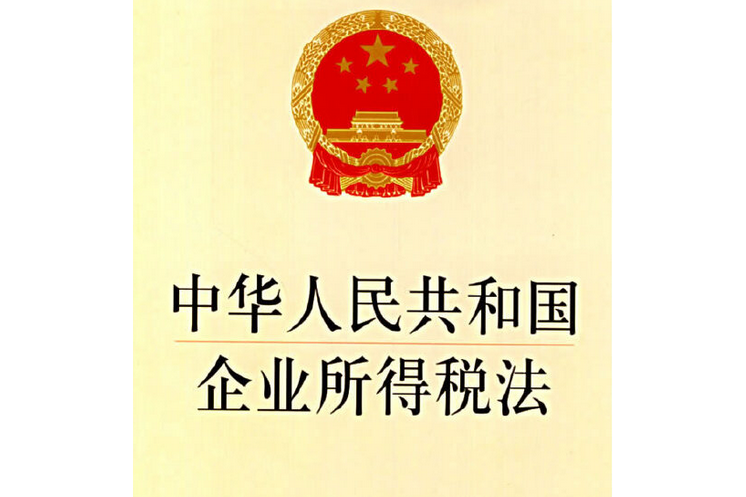
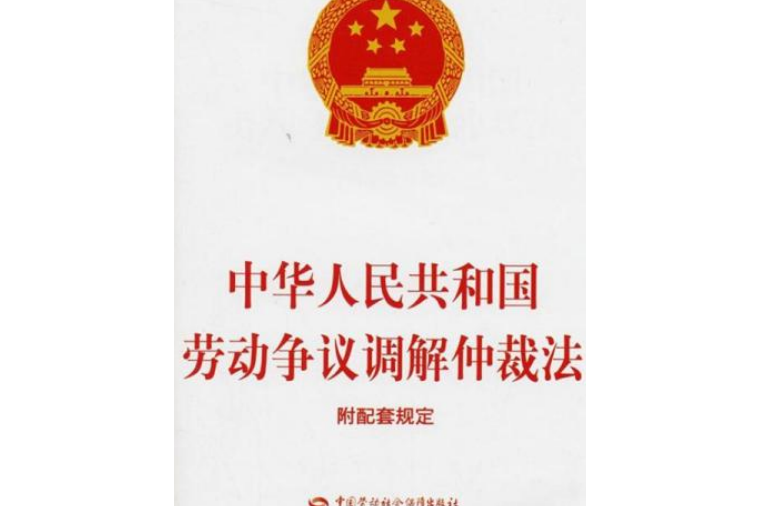


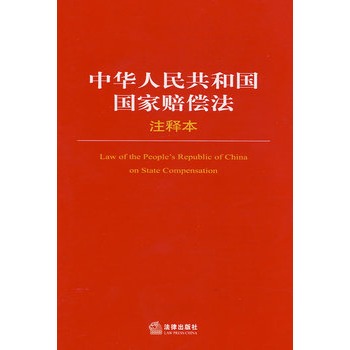
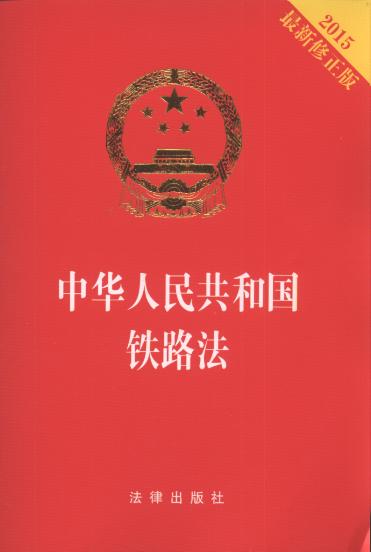
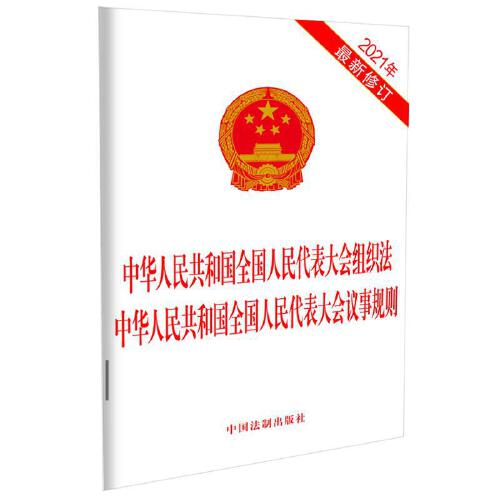


发表评论 取消回复